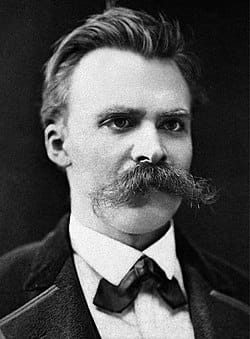O CARÁTER VULGAR DA LINGUAGEM SEGUNDO NIETZSCHE
DOI:
https://doi.org/10.59488/tragica.v3i2.25906Keywords:
Linguagem, vulgaridade, individualidade.Abstract
O presente artigo analisa a concepção de Nietzsche sobre a linguagem, levando em consideração algumas obras iniciais e algumas finais, procurando compreender as mudanças que o filósofo tem da questão. Enquanto nas primeiras obras Nietzsche ainda sustenta uma visão positiva da metafísica e do lugar que a linguagem nela ocupa, no período tardio as mesmas razões que antes assumiam um aspecto positivo passam a ser alvo da crítica. Se na metafísica de artista das primeiras obras o caráter genérico da linguagem com seu rompimento com o princípio de individuação é visto de forma positiva, nas obras tardias a linguagem será criticada porque suprime o que há de individual, revelando apenas o aspecto vulgar da vida coletiva, ou seja, traduz apenas o que há de comum entre os homens.Downloads
Published
Issue
Section
License
Authors retain the copyright and grant the journal the right of first publication, with the work simultaneously licensed under the Creative Commons Attribution 4.0 International (CC BY) license. This license allows third parties to remix, adapt, and create from the published work, attributing authorship and initial publication in this journal. Authors are authorized to assume additional contracts separately, for non-exclusive distribution of the version of the work published in this journal (e.g. publishing in an institutional repository, on a personal website, publishing a translation, or as a book chapter), with recognition of authorship and initial publication in this journal.













